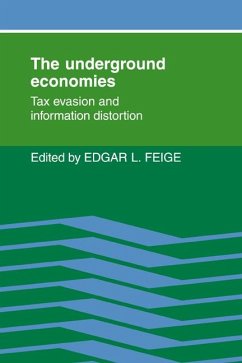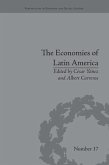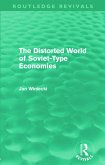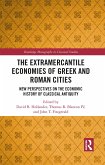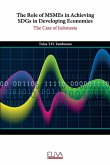These essays examine the problems of defining, measuring and understanding the implications of underground economies in many of the world's developed nations.
The most disturbing aspects of the growth of underground economies are the interrelated problems of unreported and unrecorded income. A large and growing underground economy can thwart fiscal efforts to establish budget balance and may significantly undermine the veracity of a nation's economic information system. The notion that economic information is itself endogenous raises the possibility that at least part of the economic malaise observed in most Western nations during the past two decades is essentially the result of a statistical illusion. The essays in this volume examine the problems of defining, measuring and understanding the implications of the underground economies that have emerged in many of the world's developed nations. Empirical chapters examine the conceptual problems of how to measure a phenomenon that attempts to defy detection. Alternative measurement procedures are evaluated. Specific studies are included for the United States, the Netherlands, the United Kingdom, Germany, Sweden, Italy, Norway, Canada, France, the Soviet Union and Hungary.
Table of contents:
List of contributors; Preface; Introduction Edgar L. Feige; Part I. The Meaning, Measurement and Policy Implications of the Underground Economies: 1. The meaning and measurement of the underground economy Edgar L. Feige; 2. Information distortions in social systems: the underground economy and other observer-subject-policymaker feedbacks Robert R. Alford and Edgar L. Feige; 3. Policy illusion, macroeconomic instability and the unrecorded economy Robert T. McGee and Edgar L. Feige; 4. How large (or small) should the underground economy be? Bruno Frey; Part II. The Underground Economy in Western Developed Nations: Measurement in Different Laboratories: 5. Monetary perspective on underground economic activity in the United States Richard D. Porter and Amanda S. Bayer; 6. The unrecorded economy and the national income accounts in the Netherlands: a sensitivity analysis G. A. A. M. Broesterhuizen; 7. Assessing the underground economy in the United Kingdom Michael O'Higgins; 8. The underground economy in the Federal Republic of Germany: a preliminary assessment Enno Langfeldt; 9. The underground economy in Sweden Ingemar Hansson; 10. The irregular economy of Italy: a survey of contributions Bruno Contini; 11. The hidden economy in Norway with special emphasis on the hidden labor market Arne Jon Isachsen and Steiner Strom; 12. Canada's underground economy Rolf Mirus and Roger S. Smith; 13. The underground economy in France Philippe Barthelemy; Part III. The Underground Economy Under Central Planning: 14. The Soviet second economy in a political and legal perspective F. J. M. Feldbrugge; 15. Second economy and socialism: the Hungarian experience Istvan R. Gábor; Bibliography.
Hinweis: Dieser Artikel kann nur an eine deutsche Lieferadresse ausgeliefert werden.
The most disturbing aspects of the growth of underground economies are the interrelated problems of unreported and unrecorded income. A large and growing underground economy can thwart fiscal efforts to establish budget balance and may significantly undermine the veracity of a nation's economic information system. The notion that economic information is itself endogenous raises the possibility that at least part of the economic malaise observed in most Western nations during the past two decades is essentially the result of a statistical illusion. The essays in this volume examine the problems of defining, measuring and understanding the implications of the underground economies that have emerged in many of the world's developed nations. Empirical chapters examine the conceptual problems of how to measure a phenomenon that attempts to defy detection. Alternative measurement procedures are evaluated. Specific studies are included for the United States, the Netherlands, the United Kingdom, Germany, Sweden, Italy, Norway, Canada, France, the Soviet Union and Hungary.
Table of contents:
List of contributors; Preface; Introduction Edgar L. Feige; Part I. The Meaning, Measurement and Policy Implications of the Underground Economies: 1. The meaning and measurement of the underground economy Edgar L. Feige; 2. Information distortions in social systems: the underground economy and other observer-subject-policymaker feedbacks Robert R. Alford and Edgar L. Feige; 3. Policy illusion, macroeconomic instability and the unrecorded economy Robert T. McGee and Edgar L. Feige; 4. How large (or small) should the underground economy be? Bruno Frey; Part II. The Underground Economy in Western Developed Nations: Measurement in Different Laboratories: 5. Monetary perspective on underground economic activity in the United States Richard D. Porter and Amanda S. Bayer; 6. The unrecorded economy and the national income accounts in the Netherlands: a sensitivity analysis G. A. A. M. Broesterhuizen; 7. Assessing the underground economy in the United Kingdom Michael O'Higgins; 8. The underground economy in the Federal Republic of Germany: a preliminary assessment Enno Langfeldt; 9. The underground economy in Sweden Ingemar Hansson; 10. The irregular economy of Italy: a survey of contributions Bruno Contini; 11. The hidden economy in Norway with special emphasis on the hidden labor market Arne Jon Isachsen and Steiner Strom; 12. Canada's underground economy Rolf Mirus and Roger S. Smith; 13. The underground economy in France Philippe Barthelemy; Part III. The Underground Economy Under Central Planning: 14. The Soviet second economy in a political and legal perspective F. J. M. Feldbrugge; 15. Second economy and socialism: the Hungarian experience Istvan R. Gábor; Bibliography.
Hinweis: Dieser Artikel kann nur an eine deutsche Lieferadresse ausgeliefert werden.

